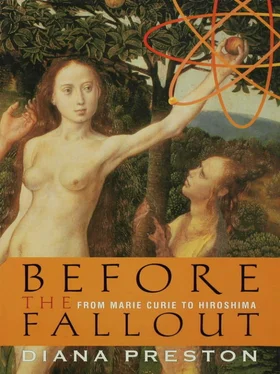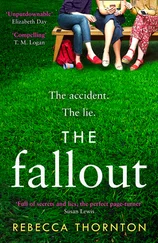President Roosevelt himself was not without prejudice, as a note by a British diplomat about a 1942 conversation with the president reveals: “It seemed to him [Roosevelt] that if we got the Japanese driven back within their islands, racial crossings might have interesting effects. For instance Dutch-Javanese crossings were good… Japanese-European thoroughly bad, Chinese-European not at all bad.” The diplomat summed up, “As far as I could make it out, the line of the President’s thought is that an Indo-Asian or Eurasian or (better) Eurindasian race could be developed which could be good and produce a good civilization and Far East order to the exclusion of the Japanese, languishing in Coventry within their original islands.”
Churchill, too, had colonialist prejudices against Asian races and battled to retain Britain’s right to rule over Indians and others.
However, there is no evidence that either adopted different military policies under the influence of such views; nor is there any evidence of any racist element in the decision to drop the bomb on Hiroshima.
Another intriguing question is: What if the German chemist Ida Noddack’s views on fission in 1934 had been taken seriously? As well as her previous failure to substantiate her claimed discovery of masurium, the reason they were not has something to do with antifeminism. It is easy to forget that when Marie Curie was making her discoveries, the only country in which women had the right to vote was Ernest Rutherford’s homeland of New Zealand, where women’s suffrage dated back to 1 893. (Perhaps this is one of the reasons he had a relatively enlightened attitude toward female students and supported Marie Curie.) Two years after Marie Curie received the Nobel Prize for Physics, former American president Grover Cleveland could still write that “sensible and responsible women do not want to vote. The relative positions to be assumed by man and woman in the working out of our civilization were assigned long ago by a higher intelligence than ours.” The early years of Lise Meitner’s career were held back by her gender, rather than by racism. [47] Discrimination may have been subliminal. In 1922 Lise Meitner’s inaugural university lecture, “The Significance of Radioactivity for Cosmic Processes,” was reported in the academic press as a talk about the significance “of Radioactivity for Cosmetic Processes.”
The frantic attacks on Marie Curie after the Affaire Langevin contained a strong line of antifeminism as well as of xenophobia. It is, perhaps, symptomatic of the predominance of males in the Manhattan Project that in agreeing on a series of code words relating to birth to report on the Trinity test, the birth of a boy was to stand for success, that of a girl for the failure of the bomb to detonate.
The sidelining of Ida Noddack also has something to do with the elitism of physicists. She was a chemist, and there was the perception among some physicists that physics was at the top of a hierarchy of science and that those lower down, such as chemists, could not be relied upon for original thought. Rutherford once said that “all science is either physics or stamp collecting.” When the Austrian physicist Wolfgang Pauli’s wife left him for a chemist he told a friend, “Had she taken a bullfighter I would have understood… but a chemist… ” Both Otto Hahn and Bertrand Goldschmidt indicated that they too faced such prejudices, and, as late as the 1970s, entrants into the nuclear industry could be told, semihumorously, of a hierarchy with theoretical physicists at the top and engineers at the bottom.
If Ida Noddack’s ideas had been followed up in 1934, fission might have been discovered a year later—four years earlier than it actually was. This does not mean that the nuclear bomb would have been available in 1941. It took wartime pressures for the Manhattan Project to receive the massive funding it required. However, the uses of fission would have been more wddely debated and information more widely pooled before the outbreak of war. For example, the use of graphite as an alternative moderator to heavy water might have been publicized and become known to the Germans. The German program would have gone into wartime isolation more advanced and posing much more immediate moral dilemmas for the scientists involved than was, in fact, the case. There might have been much more French information and facilities for the Germans to capture. On the Allied side, the British might have begun to work harder on nuclear issues earlier as, in the late 1930s, arguments for rearmament made by Churchill began to be heeded. But, on balance, it was better for the world that the scientific community, including her fellow women, such as Lise Meitner, dismissed Ida Noddack’s work as, in the words of Noddack’s fellow chemist Otto Hahn, “really absurd.”
• • •
The “what if?” question that has most preoccupied historians is: What if the bomb had not been dropped? On the very big assumption that no new diplomatic initiative would have been launched, Russia would still have entered the war against Japan. Its plans to do so to secure a share of the spoils were highly advanced, and the bombing of Hiroshima brought them forward by only a week. As the Russians’ initial progress in fighting the Japanese in Manchuria demonstrated, they would have advanced swiftly into China and occupied much of the country, perhaps hastening by a year or two the fall of Chiang Kai-shek and the communist takeover.
When Japan did surrender, the Russians would have played a greater part in determining the peace and might have asked for a role in the occupation of Japan, perhaps even seeking an occupation zone of their own. This would not have been to the Allies’ liking. Truman wrote, “The experience at Potsdam now made me determined that I would not allow the Russians any part in the control of Japan.” According to Secretary of State Byrnes, “In the days immediately preceding the dropping of that bomb his [Truman’s] views were the same as mine—we wanted to get through with the Japanese phase of the war before the Russians came in.” The Washington insider Walter Brown recorded that Byrnes believed, “After the atomic bomb Japan will surrender and Russia will not get in so much on the kill.” Clearly, Truman and Byrnes preferred to end the war quickly without the added difficulties that full Soviet involvement would entail.
The Japanese would undoubtedly have continued to resist for some time. Their defeat would probably have required an invasion of their home islands, with the heavy loss of Allied lives so much feared by Truman and Churchill. This was despite the fact that, as Allied military leaders such as Marshall, LeMay, Arnold, Eisenhower, and the Briton Alanbrooke agreed, they were militarily already thoroughly beaten. Their cities were defenseless against U.S. air attack, and their supply routes to and from their homeland and between their armies severed. Admiral Leahy wrote that by the beginning of September 1944 “Japan was almost defeated through a practically complete sea and air blockade.” There would have been further deaths of Allied airmen, of sailors in kamikaze attacks, and of soldiers fighting in Burma and elsewhere. More Japanese cities would have been destroyed and many lives lost. General LeMay told his superior, General Arnold, in June 1945 that by September or October of that year his pilots would have run out of industrial targets to bomb.
The argument made by Major Rittner to Otto Hahn that he did not care about 100,000 or 150,000 Japanese if a couple of Allied lives could be saved cannot be defended morally, even if one can understand how, in wartime, it might have been made. However, when the number of deaths reaches closer to parity, its force increases.
Читать дальше












